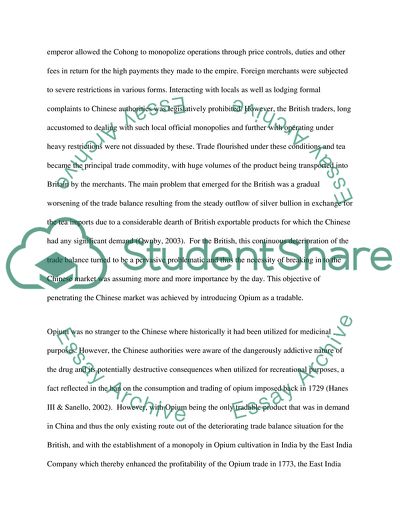Cite this document
(To what extent were the Opium Wars about opium Essay, n.d.)
To what extent were the Opium Wars about opium Essay. https://studentshare.org/history/1715647-to-what-extent-were-the-opium-wars-about-opium
To what extent were the Opium Wars about opium Essay. https://studentshare.org/history/1715647-to-what-extent-were-the-opium-wars-about-opium
(To What Extent Were the Opium Wars about Opium Essay)
To What Extent Were the Opium Wars about Opium Essay. https://studentshare.org/history/1715647-to-what-extent-were-the-opium-wars-about-opium.
To What Extent Were the Opium Wars about Opium Essay. https://studentshare.org/history/1715647-to-what-extent-were-the-opium-wars-about-opium.
“To What Extent Were the Opium Wars about Opium Essay”. https://studentshare.org/history/1715647-to-what-extent-were-the-opium-wars-about-opium.


